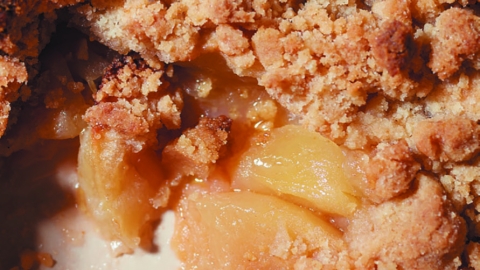(Serious) New Cook
The Must Have New Cookbook for All (Serious) New Cooks
By Kirsten Jones Neff
Cammie Kim Lin’s children grew up appreciating good food. They cooked with their mother and enjoyed family meals each evening, a legacy passed down by Kim Lin’s immigrant parents— her Korean mother and German-Lithuanian father. When Kim Lin’s children were young, they followed easy recipes from kids’ cookbooks: dishes like mac n’ cheese and chocolate chip cookies. But as her eldest son became a teenager his palate evolved, and Kim Lin noticed when he began to peruse her more sophisticated cookbooks.
“He had dog-eared half of the recipes in one of my cookbooks, but he was never making them,” says Kim Lin, a writer and professor in New York City. “He stuck to the recipes he knew how to make. My cookbooks, with these beautiful photos, had food he was accustomed to eating already—he’s been lucky enough to go to great restaurants, I cook a lot and his aunt is the former head chef at Chez Panisse—but he felt like those recipes didn’t give him enough guidance to actually make good food.”
Kim Lin went to the cookbook section of her favorite bookstore in search of something more fitting for her son. “I looked for what he needed—a sophisticated palate, but withenough instruction to make what he wanted to eat—and there just weren’t any,” she says. “The kids’ section was just filled with kid cookbooks. As I left the bookstore, I called my sister Leah and said ‘OK, we have to write a cookbook. We are doing it!’ and Leah said, ‘OK, great. Let’s do it.’ We both thought we were the right people to do it.”
Leah is Leah Su Quiroga, Kim Lin’s older sister, the aforementioned Chez Panisse head chef, who now lives on a small farm in Sebastopol where she is raising two children of her own. “We felt there was this gap between kids’ cookbooks and the more engaging sophisticated cookbooks,” says Su Quiroga. “I had in mind some adult-beginner and advanced-beginner cooks, but we didn’t want to write a teaching-forward cookbook.”
The result of that fateful sister-to-sister phone call was (Serious) New Cook: Recipes, Tips and Techniques, published last November by Welcome Books.
“We wanted to write recipes in such a way that the instructions are embedded in them,” continues Su Quiroga. “I would describe the cookbook as recipe- and technique-forward.”
In her book-jacket blurb for the book, Alice Waters, founder of Su Quiroga’s former workplace, Berkeley’s groundbreaking and world famous Chez Panisse, describes it as an “essential (and delicious) road map.”
I gave the cookbook to my own 20-something daughters last Christmas. Both are advanced-beginner home cooks who are adventurous and unintimidated in the kitchen. They rave about the recipes, and especially appreciate the principles and tips. My eldest, currently living in New York City, who tends toward homey comfort dishes, has upped her basic chicken pot pie game with the Biscuit-Topped Chicken Pot Pie recipe from (Serious) New Cook. The younger, living in LA, leans toward Asian-inspired dishes and has mastered Bulgogi Bibimbap. Both mention the Herby Tomato Salad, which feels a bit like that simultaneously simple and rarified produce-forward Chez Panisse magic.
My daughters, as well as their younger brother, all spent a lot of time with me in our kitchen, but as an untrained cook myself, I have gaps in my own knowledge, which (Serious) New Cook goes a long way towards filling in the extensive “Extra Credit” section. Introduced as “geeky extra info to help you master the recipes and deepen your knowledge,” the section offers definitions of ingredients, processes and equipment, with photographs. It includes, among many other things, an in-depth guide to Asian hot sauces, a visual of the difference between a soft peak and a hard peak, various salt descriptions and an ode to the transformative qualities of good anchovies.
The authors grew up in metro Detroit, in a multicultural immigrant neighborhood, and those influences are woven through the recipes and the cookbook in general. (Serious) New Cook also includes guest recipes by a diverse group of renowned chefs such as Sean Sherman, an Oglala Lakota chef whose Minneapolis restaurant Owamni was named best new restaurant of 2022 by the James Beard Foundation.
“Food was an important part of our life, and our mom is one of the best cooks we know,” says Su Quiroga. “As immigrants, our parents both brought their food cultures with them.” The sisters recall their mother sending them to the backyard to gather certain weeds to include in her dishes, and acorns to make acorn jelly, a traditional Korean dish. Their German-Lithuanian father was a hunter, forager and gardener, living the principles of organic and farm-to-table well before those words became part of the modern foodie lexicon. “Writing this cookbook has been interesting for me as an academic, thinking about how food shapes who we are, and what our interactions were with the people in our community,” says Kim Lin.
When asked who they hope will buy their cookbook, Kim Lin and Su Quiroga mention T. Susan Chang’s review of (Serious) New Cook for the NPR Best Books of the Year 2022 list. In her review, Chang recommends buying the book for 20-somethings, along with their first good knife. “The best compliment,” adds Kim Lin, “is when someone says, ‘I bought the book for myself … and my kids will love it.’”






